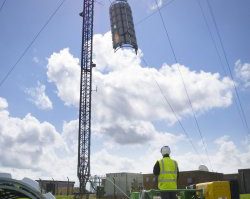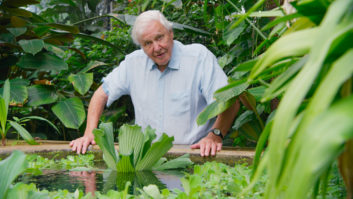The BBC and Arqiva have concluded contract negotiations for the design, deployment, and operation of the BBC’s new high-power digital terrestrial television (DTT) network which will replace both the Corporation’s analogue television networks and the current low-power DTT network.
Arqiva will also build and operate additional transmitters to expand the coverage of the BBC’s DAB digital radio network, with the possibility of up to a further 160 new DAB transmitters being ordered in the coming years.
The deal is expected to be worth, taking into account inflation, in excess of _1.8bn over the contract period. Under the terms of the contract, the new DTT services will be introduced on a region-by-region basis between 2008 and 2012 and the service will continue to be delivered by Arqiva until 2031 (2023 for DAB). The BBC’s two public-service multiplexes will be broadcast from all 1154 existing transmitter sites, delivering digital TV to 98.5% of the population via rooftop aerials.
Richard Waghorn, Controller of Distribution at the BBC, said: “We are delighted to take this next step in the process of Digital Switch Over. The delivery of high-power digital signals to the whole country is crucial if the BBC is to help deliver a fully digital UK.”
Steve Holebrook, Arqiva’s MD, Terrestrial Media Solutions, added: “Digital Switch Over is a complex and challenging task and we are absolutely delighted to have been chosen by the BBC to deliver their future television broadcast network. We have a long history in broadcast transmission and we’re proud that we’ll be playing such a major role supporting the BBC in the future.”







